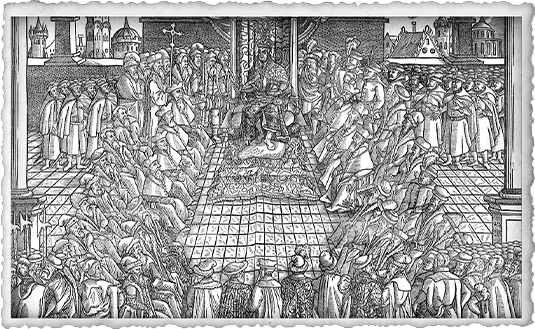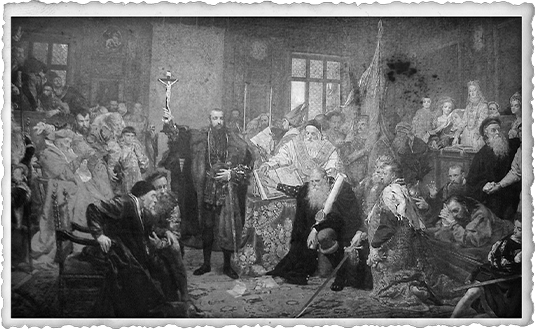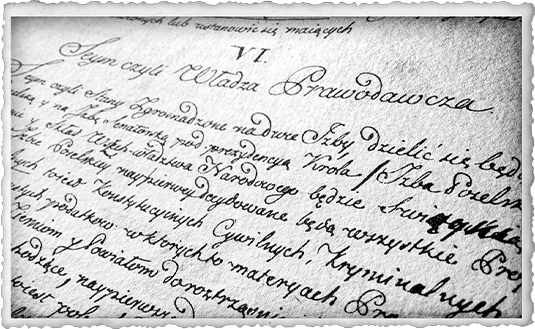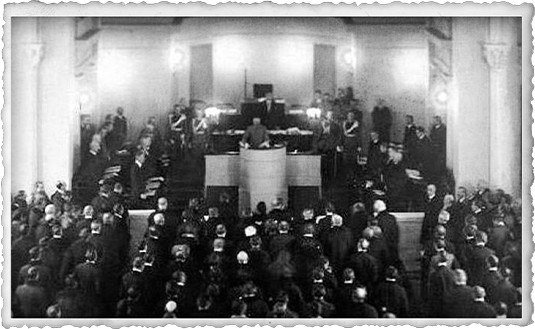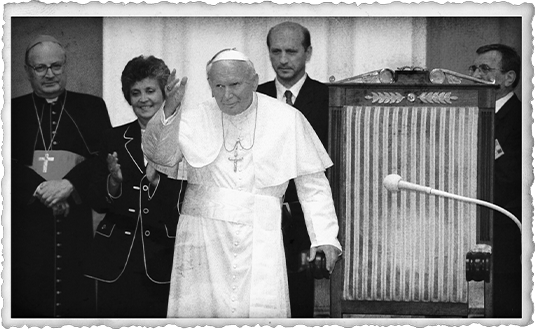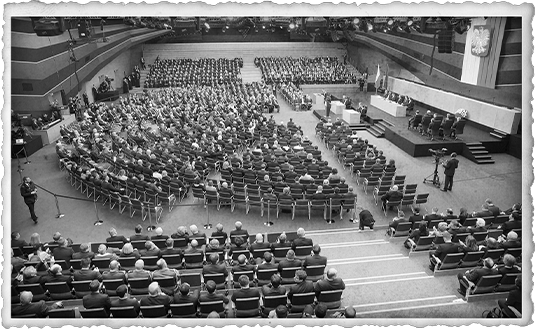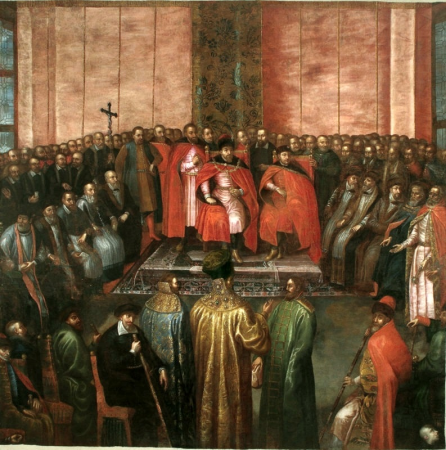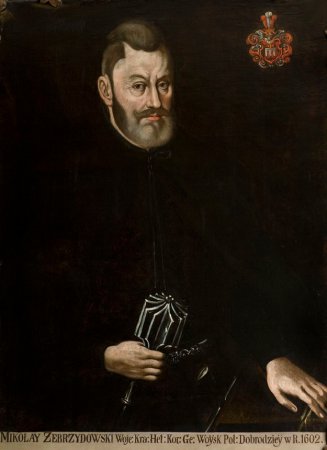During the time of rokosz. The general sejm in Warsaw. 1607.
Sejm was convened by king Sigismund III in February 1607 and the pre-sejm sejmiks were held in April of 1607. King called the sejm during his feud with the opposition, which in the previous year, after congresses in Stężyca and Lublin, called the rokosz congress to Koprzywnica near Sandomierz (confederation act of 12 August 1606). It was ultimately dispersed in the result of actions of the Royal Army, which drove the rokosz members up the Vistula River near Janowiec. The leaders of rokosz, Mikołaj Zebrzydowski and prince Janusz Radziwiłł humbled themselves before the king (7 October 1606). However, the peace was fragile and the opposition boycotted the pre-sejm sejmiks, calling an own congress to Jędrzejowo once more. In such a case, the sejm gathered on 7 May 1607 and debated in a tense political atmosphere, without the participation of the opposition. The son of the castellan of Kamieniec, Mikołaj Mieliński, was elected the marshal of the Chamber of Deputies. Lots of resolutions on various matters were adopted, respecting some of the demands of the rokosz. The sejm finished proceedings on 16 June 1607.
See: Rokosz Zebrzydowskiego. Materiały historyczne poprzedzone przedmową i rozprawą, wydał Aleksander Rembowski [Zebrzydowski rebellion. Historical research, preceded by the foreword and treatise by Aleksander Rembowski], Warszawa 1893, Biblioteka Ordynacji Krasińskich, Muzeum Konstantego Świdzińskiego, t. IX-XII; Pisma polityczne z czasów rokoszu Zebrzydowskiego [Political articles of the Zebrzydowski rebellion period], wyd. J. Czubek, t. 1-3, Kraków 1916-1918; J. Maciszewski, Sejm 1607 r. a załamanie się planów reformy państwa [Sejm of 1607 and the collapse of the state reform plans], in: O naprawę Rzeczypospolitej XVII-XVIII w. Prace ofiarowane Władysławowi Czaplińskiemu w 60. rocznicę urodzin [Reforming the 17th-18th century Commonwealth. Research in honour of 60th anniversary of Władysław Czapliński], red. J. Gierowski, Warszawa 1965, s. 37-48; E. Opaliński, Sejm srebrnego wieku 1587-1652. Między głosowaniem większościowym a liberum veto [Sejm of the Silver Age 1587-1652. Betwixt majority voting and liberum veto] , Warszawa 2001; J. Maciszewski, Wojna domowa w Polsce (1606-1609. Studium z dziejów walki przeciw kontrreformacji. Część 1. Od Stężycy do Janowca) [The civil war in Poland (1606-1609. Research on struggle against Counter-Reformation. Part 1. From Stężyca to Janowiec)], Wrocław 1960; W. Czapliński, Sejm w latach 1587-1696 [Sejm in period 1587-1696], in: Historia sejmu polskiego [The history of Polish sejm], t. 1, Warszawa 1984, red. J. Michalski, s. 217-299. I. Malec-Lewandowska, Sejm walny koronny Rzeczypospolitej i jego dorobek ustawodawczy [The Crown general sejm of the Commonwealth and its legislative achievements]. 1587-1632, Kraków 2009; E. Opaliński, Zjazd rokoszowy w Jędrzejowie w roku 1607 [Rokosz congress in Jędrzejów, 1607], in: Król a prawo stanów do oporu. [The king versus the estates’ right to resistance] Edited by Mariusz Markiewicz, Edward Opaliński and Ryszard Skowron, Kraków 2010, s. 221-248; H. Wisner, W imię praw i zwyczajów, czyli wbrew nim. Rokosz Zebrzydowskiego 1606-1607 [In the name of laws and customs or against them. Zebrzydowski rebellion 1606-07], in: Król a prawo stanów do oporu. [The king versus the estates’ right to resistance] Edited by Mariusz Markiewicz, Edward Opaliński and Ryszard Skowron, Kraków 2010, s. 209-219; H. Wisner, Wypowiedzenie posłuszeństwa czy detronizacja Zygmunta III?. Komentarz do aktu z 24 czerwca 1607 r. [Refusal of obedience or dethronement of king Sigismund III? A commentary to act of 24 June 1607], „Czasopismo Prawno-Historyczne”, t. 39, 1987, z. 2, s. 173-185. Ustawodawstwo zob. Volumina Constitutionum, T. 2, cz. 2, Design and layout prepared by S. Grodziski, Warszawa 2008, s. 337-377.


